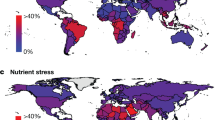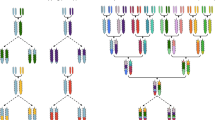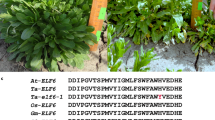Abstract
THAT breeding is an art and not a science is an opinion frequently expressed by many who are concerned with plant and animal improvement. Whatever they have meant by art in this generalization, it appears that, in their hands, breeding is mainly unscientific. It is certain., however, after reading Dr. Harland's report on cotton breeding in Peru1 that, in his hands, breeding is truly scientific and as such can give good results quickly. It is scientific because measurements of the relevant characters were his standards for selection, and because genetical principles were the guide in calculating the number of plants required, and in deciding the type of breeding. Therefore, he did not rely upon the hazards of hit-and-miss intuition of the art side of breeding.
This is a preview of subscription content, access via your institution
Access options
Subscribe to this journal
Receive 51 print issues and online access
$199.00 per year
only $3.90 per issue
Buy this article
- Purchase on Springer Link
- Instant access to full article PDF
Prices may be subject to local taxes which are calculated during checkout
Similar content being viewed by others
References
Harland, S. C., "The Selection Experiment with Peruvian Tanguis Cotton",Inst. of Cotton Gen., Lima, Peru, Bull. No. 1 (1944).
Stapledon, R. G., "The Breeding of Herbage Plants, etc.", Imp. Bur. of Plant Gen., Bull. No. 3 (1931).
Author information
Authors and Affiliations
Rights and permissions
About this article
Cite this article
LEWIS, D. The Science of Plant Breeding. Nature 155, 355–356 (1945). https://doi.org/10.1038/155355a0
Issue Date:
DOI: https://doi.org/10.1038/155355a0
Comments
By submitting a comment you agree to abide by our Terms and Community Guidelines. If you find something abusive or that does not comply with our terms or guidelines please flag it as inappropriate.



